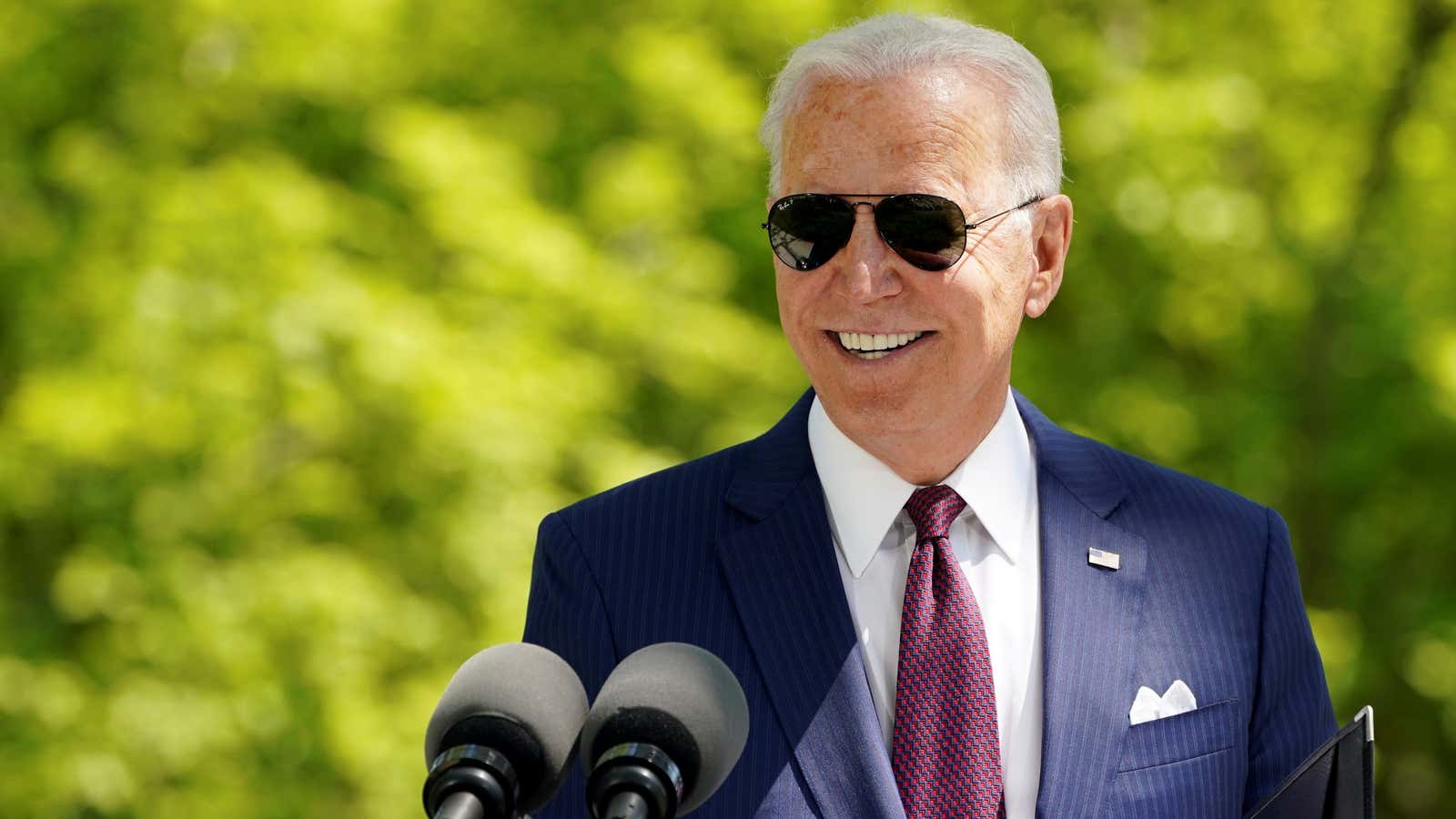US president Joe Biden will offer his first address to a joint session of Congress on April 28 at 9pm US eastern time, marking the end of his first 100 days in office. Presidents typically use these early-days addresses to pitch their agenda to lawmakers—who are currently debating Biden’s $2 trillion infrastructure package—and brag to the public about their accomplishments. Expect Biden to address police reform, and to trumpet his pandemic relief bill, the fact that a majority of American adults have now received at least one Covid-19 vaccine shot, and the country’s new climate target.
It’s too soon to fully assess Biden’s legacy, but still, the early days of a president’s term tend to set the tone for the rest. Biden’s doctrine for governing is unfolding along a few key principles:
🇺🇸 America first: Under Donald Trump, that expression was a cudgel for nativism and racism. Biden is more egalitarian. But he remains focused on domestic priorities, like racial inequality and the post-pandemic economy, and has framed his approach to foreign policy as contingent on them—White House national security guidance published in March, for example, argued that “our strength abroad requires the United States to build back better at home.” Biden also holds a strong conviction that the federal government can and should play a constructive role in guiding the economy and fixing social problems. In the meantime, global issues like refugees and trade have taken a backseat.
🌎 Seeing the economy through a climate lens: Biden’s most high-profile diplomacy and domestic policy initiatives have been on climate change, culminating with last week’s Earth Day summit. He sees climate as a natural arena in which the US can reassert itself as a global thought leader, and as the country’s most promising driver of sustained economic growth at home. His $2 trillion infrastructure bill, which Congress is currently deliberating, is the administration’s first and best shot at stirring the post-pandemic economic recovery with jobs in clean energy and adjacent industries. The US energy transition also depends on a careful balance of competition and collaboration with China on emerging clean energy industries like electric vehicles, batteries, and carbon removal. Biden will continue to leverage the moral imperative of climate action to extract commitments and cash from other rich countries and corporations.
💪 Use the global spotlight strategically: The climate summit was a test of Biden’s faith in the US’s convening power. He is keen to exercise the White House’s unique ability to bring global decision makers together to work on shared problems. The results in that case were mixed: Australia, India, and some other big emitters made no new commitments. Still, Biden has been vocal in his support for multilateral institutions like the UN and NATO, and clearly feels more comfortable with the US playing a prominent role in them, rather than retreating from them as Trump tended to do. But Biden is also ok with being quiet and boring, by staying focused on policy details and eschewing drama.
